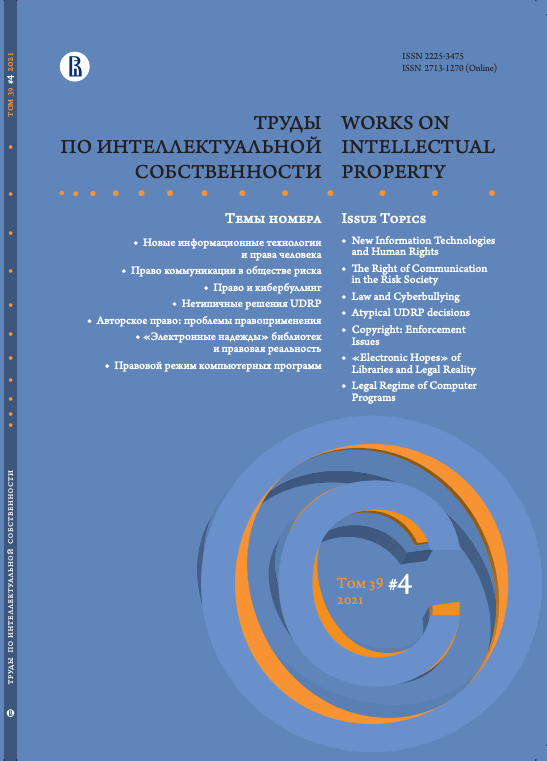ABOUT SOME NEW INFORMATION TECHNOLOGIES IN THE CONTEXT OF HUMAN RIGHTS PROTECTION
Abstract
The article examines and summarizes the judicial practice in cases involving the use of new information technologies. The object of the study is mainly the decisions of the Russian courts (general jurisdiction and arbitration) and the European Court of Human Rights. But taking into account the practice of the ECHR, the author also refers to a number of decisions of the courts of Hungary and Great Britain. Cases related to the use of new information technologies can already be separated into a separate block. This article examines the judicial practice in three categories of cases: 1) the establishment by employers of control over the electronic correspondence of employees; 2) the use by journalists of hyperlinks in copyright texts and the possibility of liability for them. In each of these categories of cases, the rights of citizens can be seriously violated. The article states that in the era of rapid development of new information technologies, states, represented by special services and authorized state bodies, are making unprecedented efforts to maintain at least partial control over the activities of new actors (bloggers, Internet media, Internet platforms, etc.) within the framework of new information relations. Among the norms regulating the new sphere of relations, quite often there are (and in the Russian Federation the dominant ones are) restrictive and prohibitive norms. The conflicts that arose were often resolved by the national courts not in favor of the citizens. In this regard, there are still grounds for concern among lawyers involved in the protection of rights related to new information technologies.


